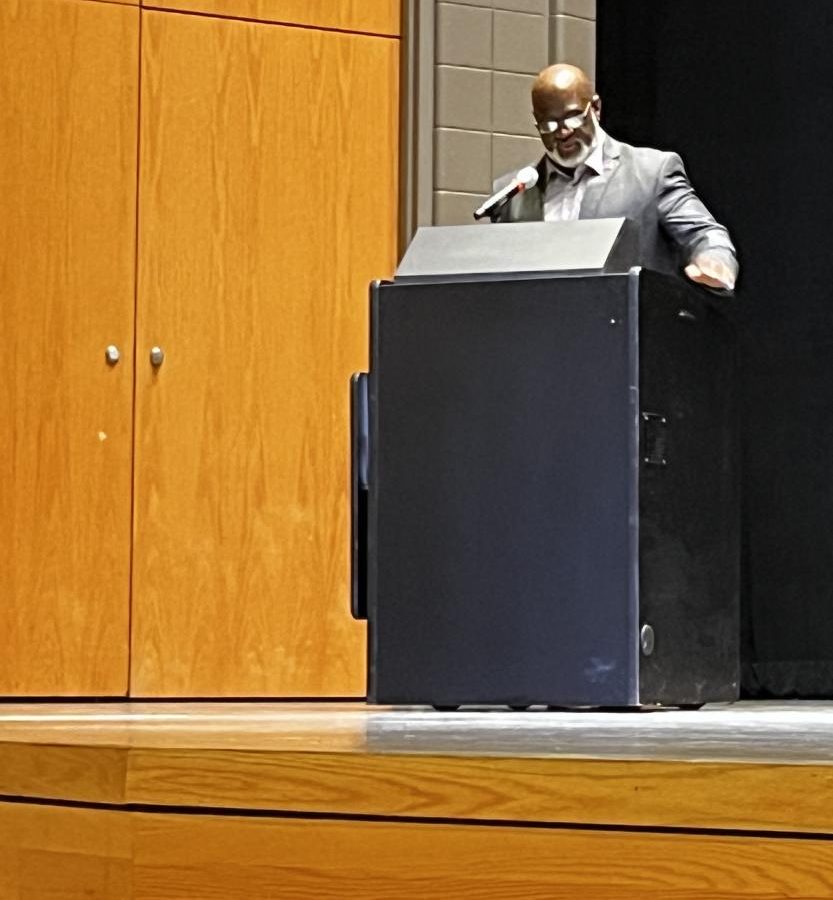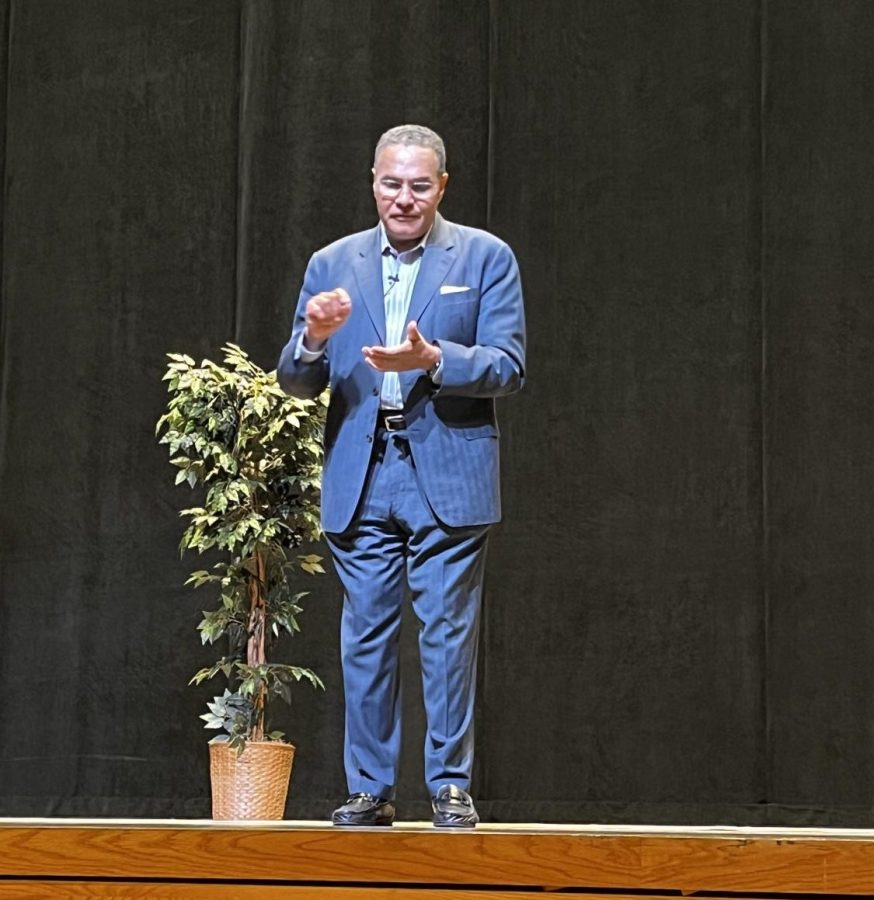Who are we as a campus?
‘Creating an Empowered University’
April 16, 2023
Guest speaker Dr. Freeman Hrabowski gave a riveting lecture entitled “Creating an Empowered University” to the UW-Whitewater campus April 11 at 3 p.m. in Young Auditorium. Hrabowski came to share his wisdom about the system of higher education to a large audience of students, faculty and staff. Several student organizations brought their members to hear the motivational speech.
Dr. Freeman Hrabowski III is the president emeritus of the University of Maryland – Baltimore County where he served for 30 years from 1992 – 2022. He came to share his story and insight as a president of a campus about how to be the best campus we can be. Hrabowski is from Birmingham, Alabama, and was a part of the peaceful protests taken on by Martin Luther King Jr. As a result he spent a week in jail that greatly impacted the person he has become today, and he has been learning how to continually empower people ever since. He believes that campus members should all be aware that they are an important part of the education system.
“We need to tell our stories. Everyone has a story.” said Hrabowski. “It makes us who we are.”
Hrabowski made it known that empowering the campus comes from coming together as a community. He directs summer school opportunities and has begun to learn what will help students come together. A main point he emphasized is leaving phones behind. Students that are going to go to college are going to be moving away from their closest friends and family, and therefore need to learn to turn to people that are around them. Providing students with a family atmosphere will help them to retain students at their campus.

“My mother told me once that when you invite someone into your house you want them to feel at home. So when Dr. Hrabowksi told me he thought the event was more business casual and didn’t wear a tie, I took off my tie so that he can feel at home,” said Dr. Corey King, Chancellor of University of Wisconsin-Whitewater.
Students on average are able to focus on their tasks within a lecture hall for approximately six minutes at most without fading out, he said. Although this may be true, students are able to zone back in, but will continue this throughout the entirety of their days. The average professional are able to focus for 20 minutes without fading out. Knowing this can help keep classes and meetings within people’s limits, and subsequently empowers the school to continue to strengthen the community by not overstretching campus members to expectations that may be beyond the reach of many.
“This is the perfect time for UW-Whitewater to engage in a conversation about how we can cultivate an empowering culture
through inclusive excellence and campus-community partnerships,” said Matt Vick, dean of the School of
Graduate Studies and Continuing Education.
Hrabowski explained that the number one change that could be made is altering the attitude of “STEM vs. Humanities” into “STEM and Humanities.” Within a university, programs need to build each other up and not turn education into a competition.
“Words become action, action becomes habit, habit becomes character, and character becomes destiny,” Hrabowski said.













